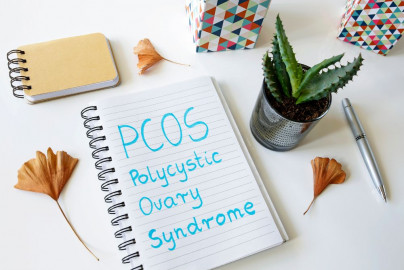Blog

Understanding the Basics of Polycystic Ovary Syndrome (PCOS)
Polycystic Ovary Syndrome (PCOS) is a prevalent hormonal disorder characterized by high levels of androgen hormones and more often than not, the formation of ovarian cysts. All women produce small amounts of androgens, although such hormones are often thought of as “male” sex hormones. For those with PCOS, androgen levels become higher than normal, resulting in unwanted physical changes and other health complications.
Common Symptoms & Diagnosis of PCOS
PCOS can manifest differently from person to person, but here are some common signs of the condition:
- Irregular or missed periods
- Infertility
- Increased facial and body hair
- Acne and oily skin
- Weight gain
- Dark or thick skin patches on the back of the neck, in the armpits, and under the breasts
Unfortunately, symptoms of PCOS resemble those of other health conditions, making it difficult to diagnose. Therefore, it is important to begin working with your provider if you notice any of the above changes. Your physician will most likely conduct a pelvic exam to check the health of the reproductive organs. They may also order an ultrasound to visualize the ovaries, and blood tests to check hormone and blood sugar levels.
Risk Factors of PCOS
The cause of PCOS remains unknown, however, providers have recognized some common predispositions, such as:
- Having a mother or sister with the condition
- Insulin resistance
- Obesity
If you have not been diagnosed with PCOS, but have a family history of the condition, and suffer from insulin resistance and /or obesity, it is important to speak with your provider about measures you can take to lower your risk of developing the condition.
Overview of Treatment for PCOS
Treatment for PCOS varies, depending on the nature of your symptoms and other health factors. Most commonly, providers may prescribe birth control to help regulate the menstrual cycle and lower androgen levels. However, if you have PCOS and are attempting to become pregnant, your treatment plan will differ and can focus on helping you conceive. In addition to medication, PCOS patients can better control symptoms through a healthy diet and exercise plan that prioritizes weight loss.
Schedule an Appointment
PCOS is a complex condition that affects many aspects of a woman’s health. While it can present challenges, early diagnosis and appropriate management can greatly improve the quality of life for individuals with PCOS. Understanding the basics of PCOS is the first step in taking control of your health and well-being. If you suspect you may have PCOS or have already been diagnosed, consult with a healthcare provider to create a personalized treatment plan that best suits your needs. With the right support and information, PCOS can be managed, allowing you to lead a healthy and fulfilling life.
Back to blog